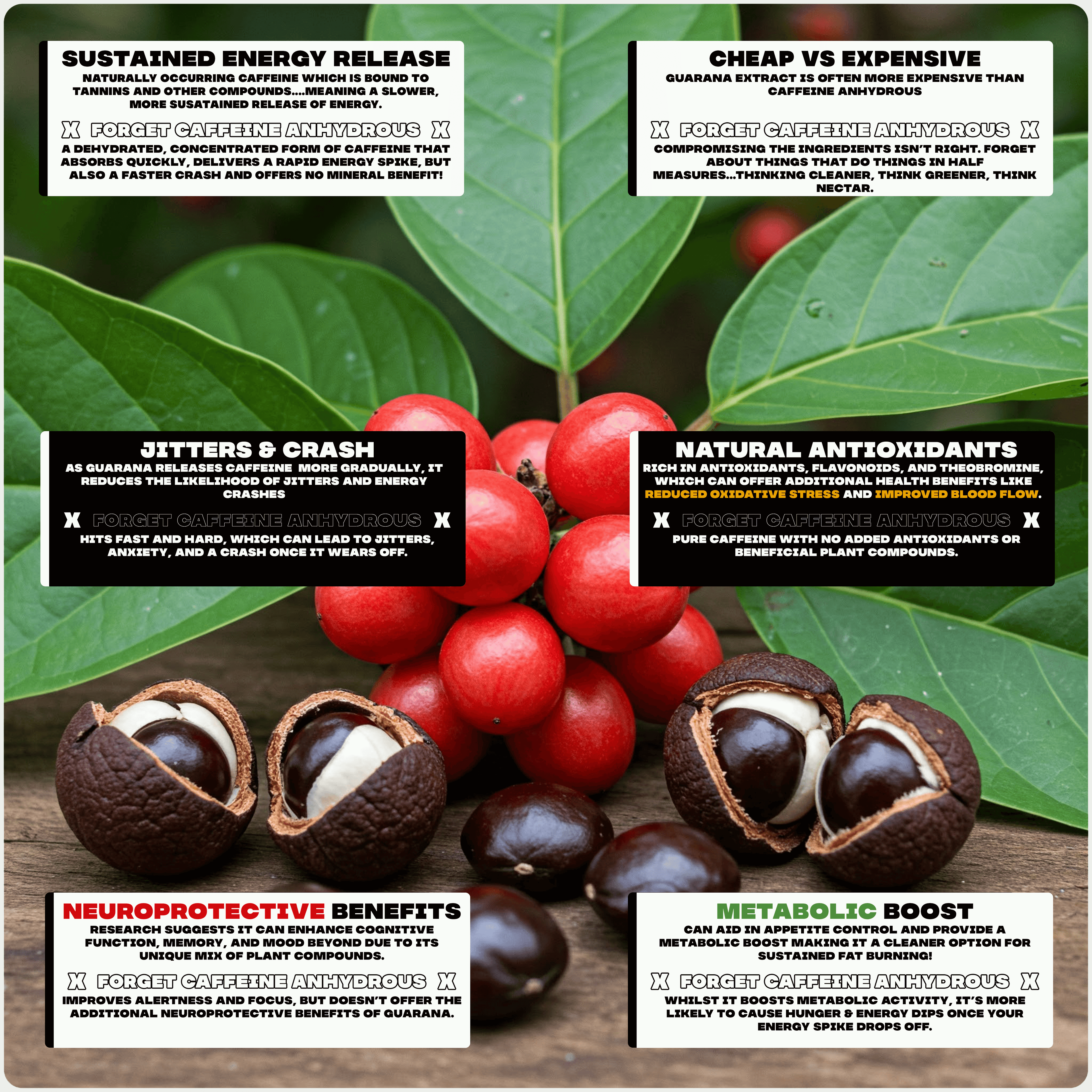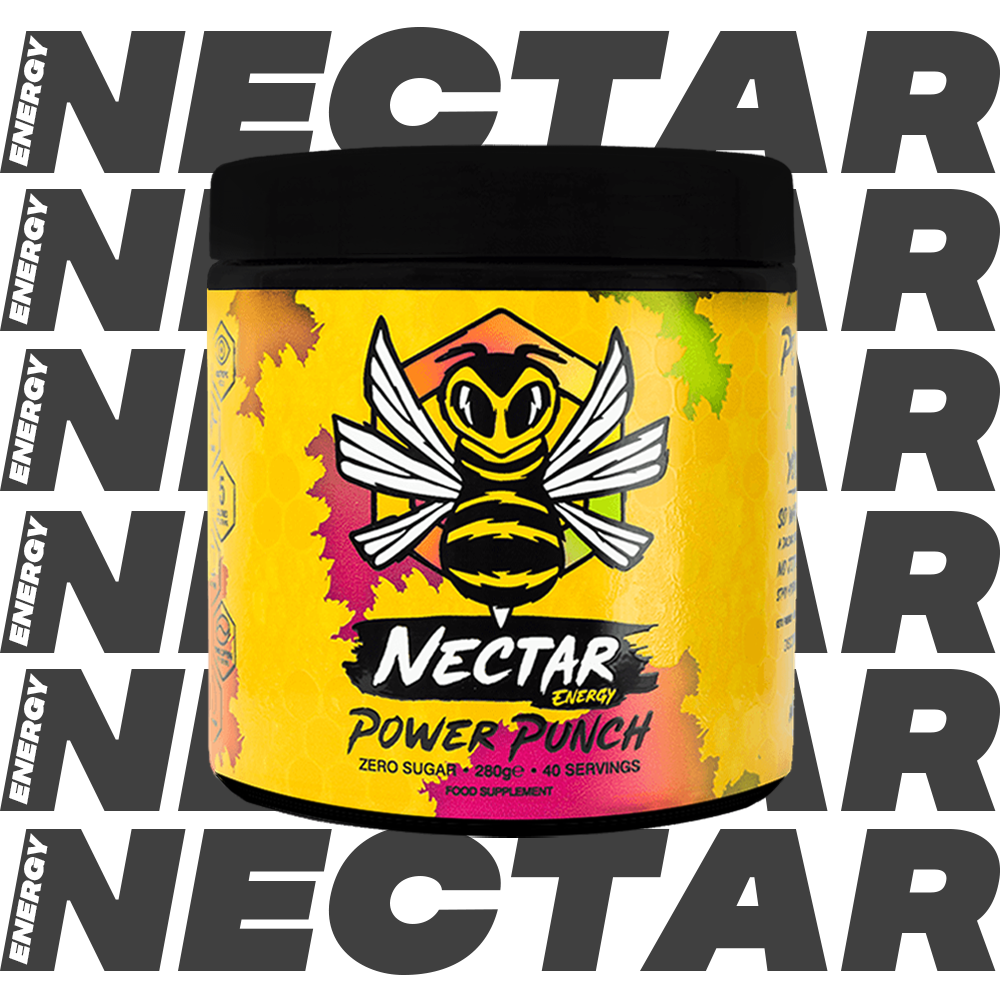Caffeine: The Deep Dive
Caffeine: it's the world's most popular pick-me-up. But did you know it comes in different forms? Today, we're comparing caffeine anhydrous—a concentrated, processed version—with the natural caffeine found in sources like guarana, green tea, and other plants. Join us as we explore the pros and cons of each.
Let's Compare Caffeine Types
-
Why Caffeine Anhydrous
Potency and Convenience: Caffeine anhydrous is a concentrated form of caffeine, meaning you get a larger dose in a smaller amount. This can be beneficial for athletes or those needing a quick energy boost.
Precise Dosing: Unlike coffee or tea, where caffeine content can vary, caffeine anhydrous offers a standardized and precise dose, allowing for better control over intake.
Enhanced Performance: Studies have shown caffeine anhydrous can improve athletic performance, including increased endurance, power output, and reduced perceived exertion.
-
Why Avoid Caffeine Anhydrous
Higher Risk of Overdose: Due to its potency, it's easier to consume too much caffeine anhydrous, leading to adverse effects like anxiety, insomnia, heart palpitations, and even more serious complications.
Addictive Potential: Regular use can lead to dependence and withdrawal symptoms like headaches, fatigue, and irritability upon cessation.
Gastrointestinal Issues: Caffeine anhydrous can irritate the stomach lining, causing heartburn, nausea, or diarrhea in some individuals.
Not Suitable for Everyone: People with certain health conditions like heart problems, anxiety disorders, or pregnant women should avoid caffeine anhydrous.
Let's Cover Our Source : Guarana
Healthier energy from natural sources. From sustained energy without jitters or crash, naturally loaded with antioxidants, neuroprotective traits and metabolic stimulation.







